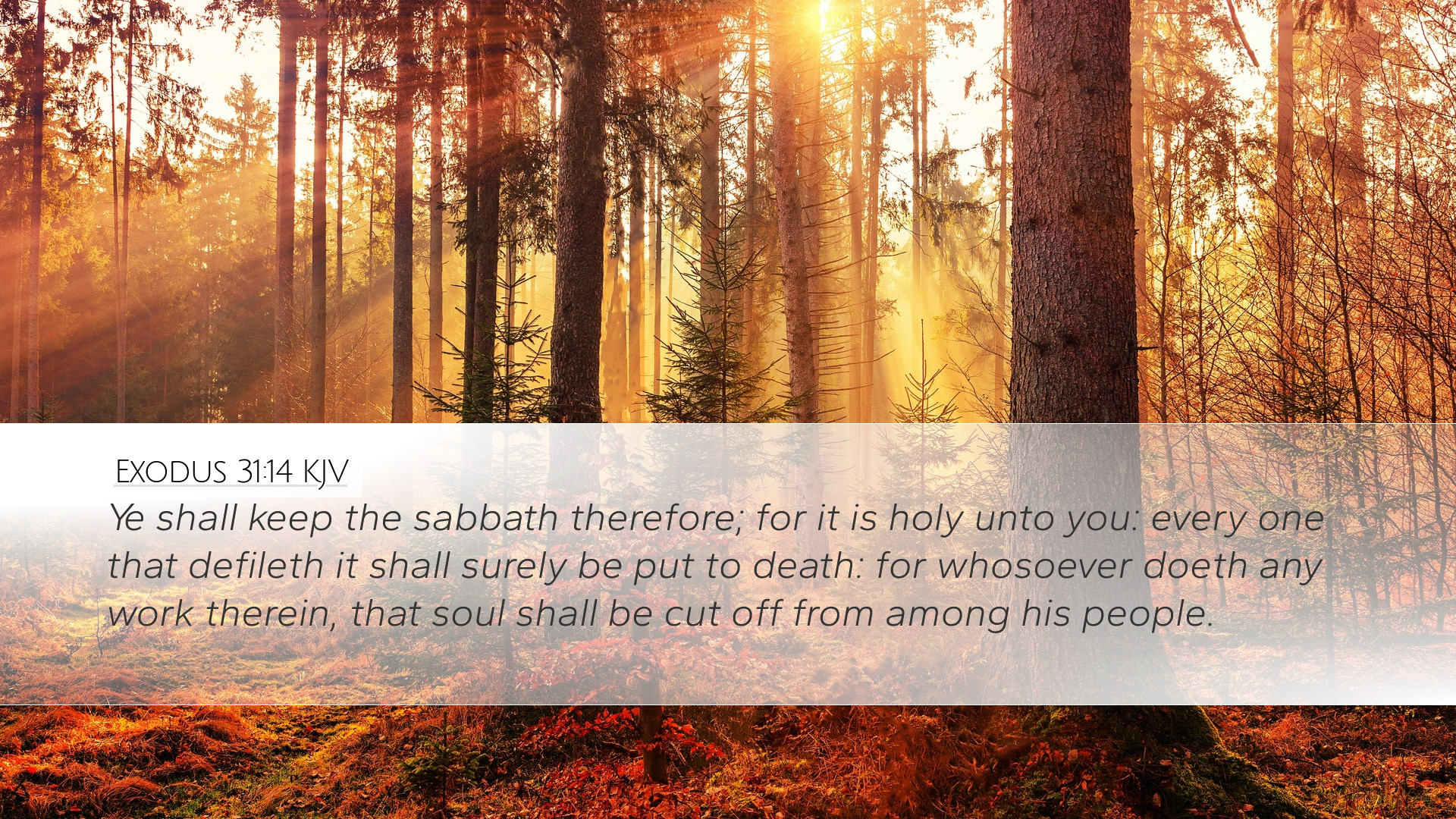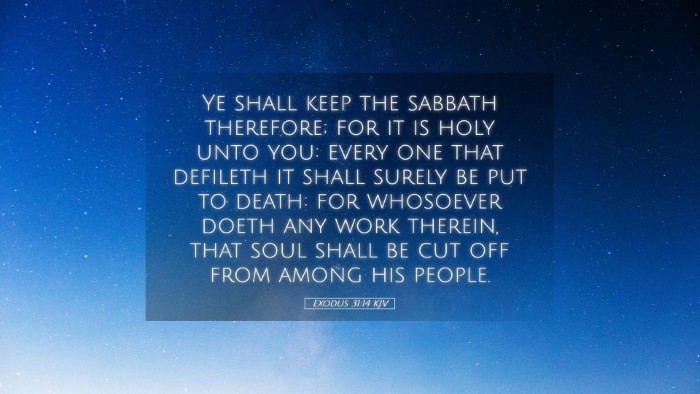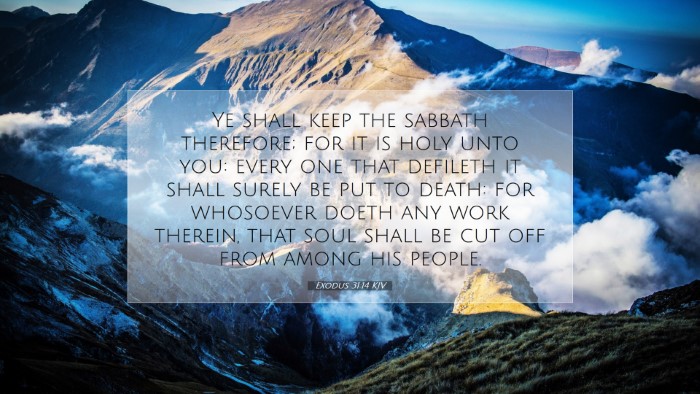Commentary on Exodus 31:14
Bible Verse: "You shall keep the Sabbath, therefore, for it is holy to you. Everyone who profanes it shall surely be put to death. For whoever does any work on it, that person shall be cut off from among his people." (Exodus 31:14, NKJV)
Introduction
This verse underscores the seriousness with which God regards the Sabbath. The command to keep the Sabbath is central to the covenant between God and the Israelites. Public domain commentaries provide rich insights into the theological and practical implications of this command, as it relates to both the Old Testament context and its relevance for contemporary believers.
The Importance of the Sabbath
Matthew Henry emphasizes that the Sabbath is established by divine authority and exists as a day consecrated for rest and worship. He notes that the command to observe the Sabbath serves as a reminder of the Creator's rest after six days of creation. It is a day set apart for the acknowledgment of God's sovereignty.
Albert Barnes adds that the Sabbath is a continual reminder to man of his duties to God and to himself. The countless benefits of rest highlight not just physical recuperation but also spiritual renewal. Barnes points out that neglecting this command leads to moral and spiritual deterioration.
Holiness of the Sabbath
This verse underscores that the Sabbath is holy to the Lord and set apart for specific purposes. Adam Clarke explains that the term "holy" connotes separation from the common and mundane tasks of daily life. He notes that this intrinsic holiness demands reverence and respect from those who observe it.
Moreover, Matthew Henry asserts that the sanctity of the Sabbath should elevate the believer’s worship experience, enabling them to focus entirely on their relationship with God without distraction.
Punishment for Profaning the Sabbath
The verse also presents a stark warning against profaning the Sabbath, highlighting the severe consequences for those who disregard this command. Albert Barnes interprets the phrase "shall surely be put to death" not only in a literal sense but as indicative of the seriousness with which God takes the violation of a holy declaration. This mirrors the covenantal relationship where obedience leads to life and disobedience carries consequential death.
Adam Clarke further elaborates that this punitive measure illustrates the gravity of sin and the high cost associated with trampling upon God’s covenant. It serves as a deterrent and reinforces the seriousness of maintaining communal and personal sanctity concerning the Sabbath.
Theological Implications
The command to observe the Sabbath extends its significance beyond mere cessation of work; it invites deeper theological reflection. Matthew Henry writes that the Sabbath is not just a day off; it is a divine institution that embodies covenantal love between God and His people. Observing the Sabbath strengthens community bonds through congregational worship and fellowship.
- Restoration: The Sabbath serves as a regular reminder of the need for spiritual restoration. It is a pause from life’s labors, inviting believers to reflect on God’s provision and mercy.
- Identity: In a cultural context where identity often comes from accomplishments, the Sabbath asserts that one’s worth is rooted in being a child of God rather than in productivity.
- Anticipation of Christ: Some theologians view the Sabbath as foreshadowing the ultimate rest found in Christ. Albert Barnes notes that Jesus Himself embodied the Sabbath as He offered the true rest for the wearied soul.
Practical Applications
In modern contexts, pastors, theologians, and believers must grapple with the call to observe a Sabbath. Adam Clarke encourages believers to view the Sabbath not as an obligation, but as a joyful opportunity to connect with God. Practical elements include:
- Rest: Schedule time to disengage from work-related activities and cellphones, intentionally prioritizing family and community interactions.
- Worship: Allocate this day for corporate worship and spiritual reflection, recognizing it as a vital component in the life of faith.
- Serving Others: Following Christ's example, engage in acts of service on the Sabbath, demonstrating love and compassion towards those in need.
Conclusion
Exodus 31:14 serves as a profound reminder of the importance of the Sabbath in the life of the believer. Through insights from esteemed public domain commentaries, we glean a deeper understanding of its implications in relation to rest, holiness, and community responsibility. The call to observe the Sabbath is not merely an Old Testament ordinance but resonates with timeless truths relevant for today’s believers. Embracing Sabbath rest is an invitation to experience God's peace and renewal amidst a frantic world.


